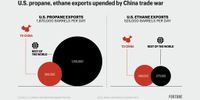In a significant development in the tech and energy sectors, Nvidia Corp. CEO Jensen Huang visited Beijing on April 17, 2025, to engage with Chinese officials and local customers, amidst ongoing tensions over U.S. export controls. Huang's discussions centered around new chip designs that are expected to navigate the stringent restrictions imposed by the U.S. government on advanced artificial intelligence (AI) accelerators sold to China.
During his visit, Huang met with notable clients, including Liang Wenfeng, the founder of DeepSeek, a rising player in AI technology known for its reasoning model, R1. This model has gained attention for demonstrating capabilities comparable to some of the most advanced paid reasoning models, yet it is available for free under an open-source license. The conversations reportedly focused on innovative chip designs that would not fall under the current U.S. export restrictions, marking a strategic pivot for Nvidia as it adapts to the regulatory landscape.
These discussions represent the third instance where Nvidia has modified its processor lineup in response to U.S. export controls aimed at curtailing China's access to advanced technology. In 2022, the Biden administration implemented rules banning the sale of Nvidia's flagship H100 graphics card to Chinese clients. In a bid to comply, Nvidia developed a scaled-down version known as the H800, which halved the chip-to-chip data transfer rate to circumvent the restrictions.
However, the regulatory environment has continued to evolve. In 2023, the Biden administration extended the export restrictions to the H800, prompting Nvidia to create an even slower chip, the H20, which reportedly offers less than 4% of the performance of the Blackwell B200, Nvidia's top-tier graphics card. This marked a significant downgrade in capability, as graphics cards are typically utilized in clusters that require efficient data exchange for optimal performance.
Just before Huang's visit, Nvidia disclosed that the U.S. government had further restricted its ability to sell H20 chips to Chinese customers. This regulatory shift is expected to have substantial financial implications for the company. On April 15, 2025, Nvidia stated it anticipates a $5.5 billion charge due to these changes, reflecting the mounting pressures from U.S. policy on its business operations.
Amid these developments, a House committee sent a letter to Nvidia on April 16, 2025, requesting information regarding its dealings with DeepSeek. Lawmakers are investigating whether Nvidia supplied DeepSeek with chips that are subject to export restrictions. This scrutiny comes in the wake of concerns about compliance and the potential implications of U.S. technology being used in advanced AI applications in China.
DeepSeek's flagship R1 reasoning model is an upgraded iteration of its earlier neural network, DeepSeek-V1, which debuted in January 2025. The initial model was trained using H800 graphics cards, utilizing a cluster equipped with approximately 2,000 of these chips. This development underscores the intricate relationship between U.S. tech firms and Chinese AI developers, as they navigate a landscape fraught with regulatory challenges.
On the energy front, the U.S. does not export significant quantities of crude oil or gas to China, but there are growing concerns about the potential impact of tariffs on U.S. propane and ethane exports. These hydrocarbons are crucial for various industrial applications, and any disruptions could have far-reaching consequences for both economies. As trade tensions escalate, the fate of these exports hangs in the balance, with tariffs potentially strangling this segment of the U.S. energy market.
In summary, the intersection of technology and energy in the current geopolitical climate highlights the complexities faced by companies like Nvidia and the broader implications for U.S.-China trade relations. As both sectors grapple with regulatory challenges and market dynamics, the outcomes of these developments will likely shape future interactions between the two global powers. With Nvidia's strategic adjustments and the looming threat of tariffs on energy exports, the landscape remains fluid and uncertain.





